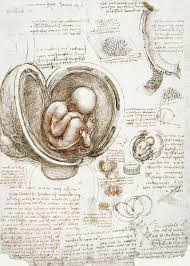One half of the "Songs of Innocence and Experience" re-package done by William Blake himself for his patrons, Innocence stands at one of those things that looks at some of the best things in life, like a mother's soothing voice, home, green grass, and so forth.
He mentions "rest" several times, perhaps reflecting the weariness of William Blake at being a poet and printer, having designed and hand-painted his own prints. Weariness comes, printing small runs of copy to sell to basically friends and supporters. It's not as broad as having an Etsy store or an Ebay pop-up, and otherwise, without major publisher support, artists even today are lost in the noise.
But, of Innocence.
"On a cloud I saw a child,
And he laughing said to me:
'Pipe a song about a lamb!'
Blake does, including the Lamb in this volume on Innocence, a true majestic soft-spoken counterpoint to the later Experience masterpiece, "The Tyger".
"Little Lamb, who made thee?
Dost thou know who made thee?
Little Lamb, I'll tell thee,
Little Lamb, I'll tell thee:
He is called by thy name,
For he calls himself a Lamb...."
The artist is somehow included in the religious elegy, as one kind of creator, just as he plays a bit rougher and more original in "The Tyger", but here is a sing-song kind of nursery rhyme.
I imagine it being read softly, and the syllables, the consonants being soft in their iteration, just like the silent "b" on "lamb".
Later:
"My mother taught me underneath a tree
And sitting down before the heat of the day
She took me on her lap and kissed me,
And pointing to the east began to say:
Look on the rising sun: there God does live
And gives his light, and gives his heat away
and Flower and trees and beast and men receive
Comfort in morning joy in the noonday..."
Everything good, or identified as good, the comfort provided by a mother, and the restful cool of morning. In the particular poem there, "The Black Boy" he speaks of the white counterpart, the English lad, coming to love the black boy.
"Pretty pretty robin!
Under leaves so green
A happy blossom
Hears you sobbing sobbing
Pretty pretty robin
near my bosom."
Later, in "The Chimney Sweeper", we are provided perhaps comic relief in the form of workmen, something not shown so much in art in England, the supposed "lower class" or even "workers", but again, a religious piece noting that to do one's duty was God's will.
"The little boy lost in the lonely fen,
Led by wand'ring light,
Began to cry; but God, ever nigh,
Appear'd like his father, in white,
He kissed the child, and by the hand led,
And to his mother brought..."
And even night is brought under God's hand in verse, and God here is ultimately fatherly and providential.
"Sound the flute!
Now it's mute,
Birds delight
Day and night;
Nightingale
In the dale,
Lark in sky,
Merrily,
Merrily, merrily, to welcome in the year."
And closing the Innocence verses:
"Little Lamb,
Here I am;
Come and lick
My white neck;
Let me pull
Your soft wool;
Let me kiss
Your soft face..."
And if it wasn't child's rhyme, it certainly mimics that art, in Blake's art, with a religious bent, and even the rhyme of the shepherd speaks that when the beasts know the shepherd is near, they are happy and calmed......


No comments:
Post a Comment
Thank you for your interest in the material. Feel free to post, and speak your mind. "Democracy is the conundrum in which good peoples repair."